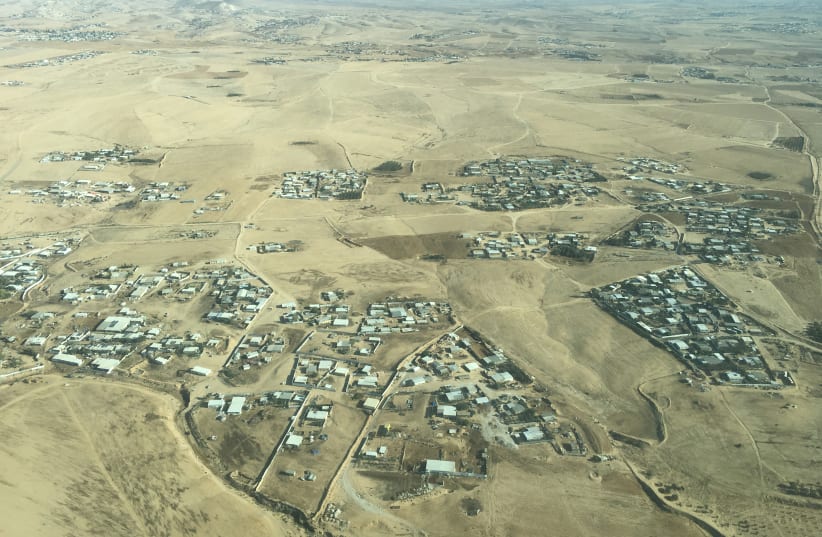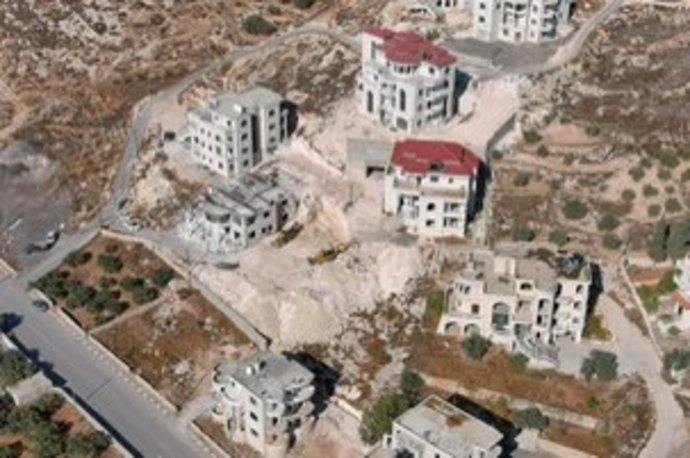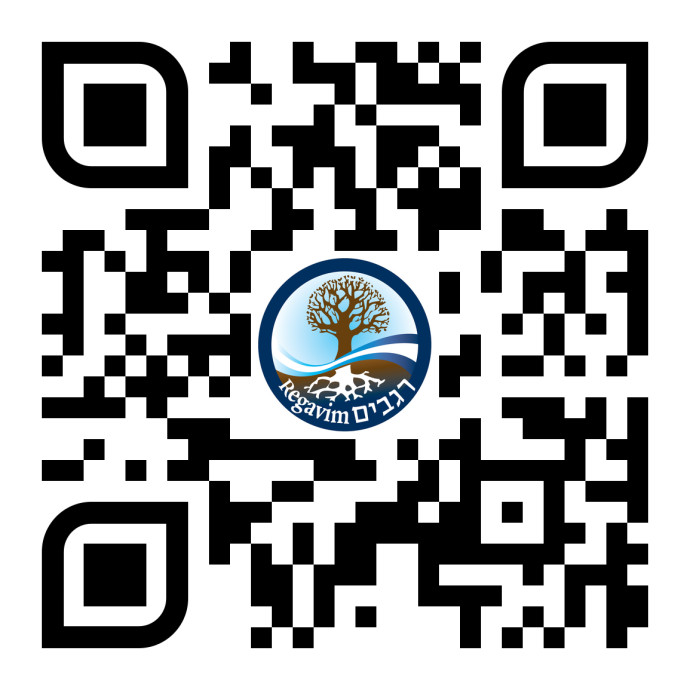When you look out the window anywhere in the Land of Israel, do you know – do you really understand – what you're seeing? For far too long, people have been gazing out their windows, taking in the stunning views, without realizing they are looking at a new battleground for the future of the Israel.
Regavim (Hebrew for mounds of earth) was conceived in 2005, originally as “The National Land Protection Trust,” when three young Israeli idealists looked out of their windows and realized that the Land of Israel was gradually disappearing before their very eyes. In response to what they were seeing in the Galilee, the Negev and Judea and Samaria, and as a reaction to the successful lawfare campaign against Jewish communities spearheaded by Peace Now and a host of foreign concerns, they joined forces, using their expert legal and fieldwork skills to confront the forces undermining Jewish sovereignty and delegitimizing the Jewish State.
Ever since, they have been singlehandedly waging the legal battle to preserve Israel's most precious resource: the land itself. Regavim’s small but dedicated team of fieldworkers and attorneys documents, researches and prosecutes the abuses of Israel's resources and sovereignty that threaten the very foundations of the Jewish State.
Regavim is a "big picture" operation: Detailed information collected in the field is used to formulate a broad, comprehensive approach to the challenges Israel faces on the national and international policy level. Regavim’s field coordinators traverse the countryside, investigating and documenting illegal construction and other land-use issues.
The cases uncovered by Regavim’s “boots on the ground” approach have exposed gaping holes in Israeli legislation, inadequacies in Israel planning systems, and violations of national and international law - but the individual cases are only a part of the larger goal.
By 'connecting the dots' between seemingly-random violations, Regavim’s analysis of the situation and recommendations for policy and legislative solutions have helped this small organization establish itself as a leading source of reliable data and viable, sensible solutions to Israel’s most thorny problems.
"The idea is to empower the government to exercise its power," says Meir Deutsch, one of the founders of the movement who now serves as Director-General. "We use the information we gather to create an overview of the problem, using every resource we can get our hands on: archival material, land deeds and official documents, historic photographs, up-to-date aerial and drone photography, state-of-the-art GIS maps, and more. When we have the facts, the next stage begins.”
“We process and digest all of this information and build our case, file official complaints with the relevant authorities, and closely monitor enforcement activity. When necessary, we take it to the next stage – all the way through the Supreme Court,” Deutsch explains.
The process doesn't end there, though. The follow-up often takes longer than the case-building or prosecution, and some active cases have been in the courts for over a decade. In the interim, Deutsch and his colleagues use the information and experience to piece together a larger picture of the underlying issues, and to formulate solutions. With hard facts and incisive analysis, they take any and every procedural and legal measure necessary to compel those responsible to enforce the law. And when the law is insufficient or unclear, they focus their efforts on lobbying and participation in Knesset hearings, and have become a major contributor to important pieces of legislation that strive to fill the gaps that allowed the problems to arise in the first place.
It's painstaking, exacting work on a shoestring budget with a small but dedicated staff. The odds against their success seem insurmountable, the magnitude of the challenges stupendous. Yet they have sued the United Nations for violations of Israel's sovereignty by UNTSO’s Jerusalem headquarters in Armon HaNatziv, forced a halt of European Union-funded illegal construction in the Adumim region, rewritten Israel's Planning and Construction Law – cutting illegal construction starts by nearly 70% nationwide in just two years - and more. Regavim’s successes include reversal of massive environmental damage, removal of illegal construction from archaeological sites, protection of precious water sources and more. Regavim is considered the foremost expert on the Negev, where land issues continue to present a massive, complex challenge to Israel’s development and to Israel’s social fabric. Regavim is also a leading voice in issues regarding Judea and Samaria. Thanks to Regavim’s patient, precise and unique brand of activism, its core issues are at the very top of Israel’s legislative and policy agenda.
Naomi Kahn, Director of Regavim's International Division, sums it up: "Our activities extend from the ground – literally – all the way up to the top level of Israel's legislative and judicial spheres, and beyond. Everything we do operates within the existing legal and public policy framework – but we aren’t content with simply grappling with present realities. We work to create better realities, better frameworks in which the vision of a Jewish, democratic, sovereign State of Israel can flourish.”
For more information: Regavim
This article was written in cooperation with Regavim


